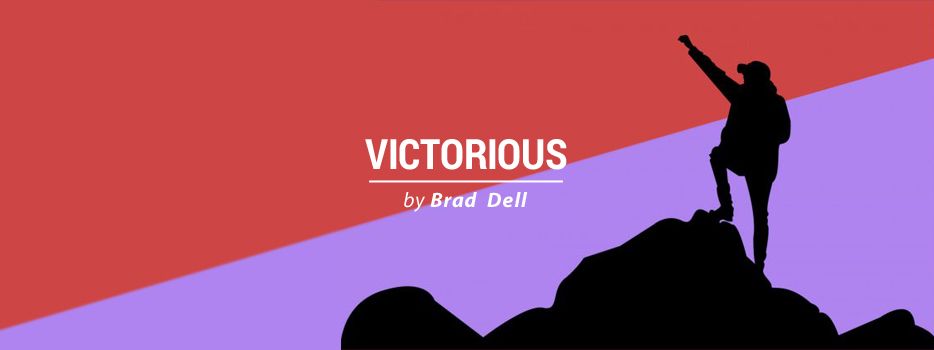How a Romance’s Death Led Me to Finding a More Powerful Love
Written by |

I’ve been in love. It was magnificent. It also hurt.
Love belongs among the most powerful building blocks of our cosmos. Passion drives creation, compassion nurtures it. Blend the two for love.
Tragically, I’ve found that adding a sick body to the mix can threaten the balance. Passion wanes as compassion becomes the priority; it suffocates when one barely has enough energy to stand, or when the other realizes they’ve transitioned from partner to caregiver.
My own realization came in 2017 when my then-girlfriend sent me an essay from The New York Times’ weekly column “Modern Love.” The essay, “When Love Isn’t as Simple as Standing by Your Man,” was written by double-lung transplant survivor Eirik Gumeny, who has cystic fibrosis. Gumeny describes how his wife left him during transplant recovery after realizing, “I don’t think I can do this anymore.”
She “needed a break from doing the impossible. Her hasty retreat didn’t mean she was done with me. It meant that she was as broken as I was.” He concluded that although their love was indestructible, they were not. Yes, love is all-powerful, but its bearers remain limited.
Gumeny’s story reads like a narrative of my old fears. I hated feeling like I’d seduced someone into a life of unnecessary dread, of “doing the impossible.” Love was a curse that drove me into feeling greedy and refusing to release my relationship for the good of my then-girlfriend.
I’ve had ugly relationships, but others were with wonderful people who repeatedly tried to assure me our alliance was not contractual, and that love didn’t work that way anyhow. Because of love’s irresistible power, though, I couldn’t help feeling that it blinded them to the reality that our relationship was hurting them. I didn’t know then that my insecurity was only further destroying our passion.
Eight months after my transplant, I found myself single for the first time in six years. Like Gumeny, I understood.
The two years before my next relationship were filled with identity wrestlings. I’d ponder whether to include my disease in my dating profile as a “warning,” and startle myself after telling a friend I’d never date another transplant patient because “that’s just asking for trouble.” I’d also identify codependency tendencies upon suffering withdrawals from the emotional validation I’d so easily collected through romantic partnership.
For those two years, I thought romance evaded me because people could only ever see my disease, as if it were my entire identity. I was insecure because of this false identity, and so I desperately wanted a relationship to make me feel secure. Desperation isn’t attractive. Yes, ironically, one big thing preventing me from finding romance was that it was what I most desired. (I understand that desire sounds contradictory to this column’s start, when I said I felt terrible for feeling like a burden in relationships. Who said insecurities are rational?)
I couldn’t point to a single moment when these thinkings dawned on me, but at some point I recognized the need to sort out my priorities. I transitioned from self-pity, to growing myself to become the best-possible man for my next relationship, to growing myself for my own sake. I grew myself because I began to love myself.
Love is a potent drug, far more than any of the artificial varieties, and it was exactly what I needed to cure the sickness of insecurity. Yes, I achieved rapid growth by harnessing love’s great power and directing it toward myself.
This feat involved some faith journeying. As a Christian, the command to “love others as you love yourself” confused me. It sounded prideful, but we must remember that pridefulness is just a different flavor of insecurity, and love is not insecurity. Pridefulness looks like enslavement to power, compliments, or dominance. Self-love looks like liberation from unhealthy dependency on the opinions of others. By filling yourself with love, you can more liberally share with others and without the many hurtful effects of insecurity.
I found love for myself through traveling alone, positive self-talk, intentional solitude, taking myself on “solo dates” to celebrate milestones, challenging my fears, remembering that people who try to hurt me do so only because they are first hurt, releasing toxic friendships, allowing only uplifting content on my social media feeds, mentoring younger people, journaling my strengths and values, deepening my faith, enjoying life.
Through learning to love myself, I no longer need the validation of romance, nor do I think I am unworthy of a healthy romantic relationship. Though I’ve found myself single again the past two months after a year-long peaceful relationship, I find joy in cultivating nonromantic relationships, in nourishing my own soul, and in knowing I learn much from all seasons, whether with or without romance.
I write all of this simply to urge all readers to find love for themselves instead of seeking it only from another through romance. If a relationship is in the cards, you will both be happier. If not, you will find contentment.
***
Note: Cystic Fibrosis News Today is strictly a news and information website about the disease. It does not provide medical advice, diagnosis, or treatment. This content is not intended to be a substitute for professional medical advice, diagnosis, or treatment. Always seek the advice of your physician or other qualified health provider with any questions you may have regarding a medical condition. Never disregard professional medical advice or delay in seeking it because of something you have read on this website. The opinions expressed in this column are not those of Cystic Fibrosis News Today, or its parent company, Bionews, and are intended to spark discussion about issues pertaining to cystic fibrosis.







Leave a comment
Fill in the required fields to post. Your email address will not be published.